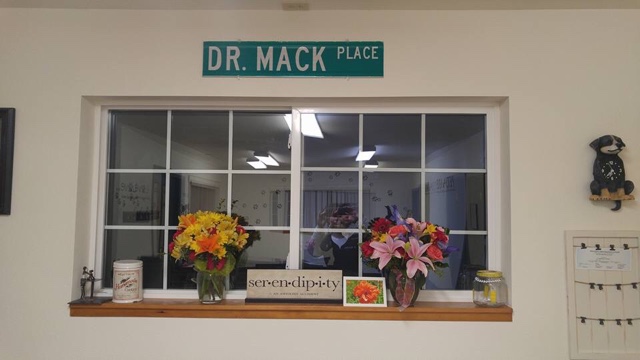By: Liv Stecker
The old adage says that it takes a village to raise a child - the truth is, in most rural school districts, the task falls to a handful of dedicated teachers who do far more than instruct in classrooms. Catherine Diane Wilson is one of those teachers, retiring after 30 years of work in the Northport School District that has extended far beyond the reach of the blackboard and desk.
Catherine “Diane” Varner, a native of British Columbia, began teaching in 1975 at her alma mater, J.L. Crowe High School in Trail, BC. Recruited to teach straight out of the University of British Columbia, Diane launched a community recreation program at J.L. Crowe, leading a pack of 11th and 12th graders on adventures all over BC, including cross country skiing, glacier hikes, and fundraising for local charities, pushing the community connection to the many recreational opportunities in the area. Miss Varner was a 22 year old high school teacher, straight out of university and full of new ideas about education. “I had a fresh excitement for taking kids to do the things I love,” she says about CR12, her community recreation class. Within her first year, Diane found herself in front of the school board explaining circumstances when her cross country skiing expedition returned hours after dark, or her class went skinny dipping in a glacial lake. “I was the youngest teacher by 11 years, and I guess I was a little crazy even then.” She laughs, with the characteristic twinkle in her eye that hasn’t faded in 37 years of teaching. Growing up in the area around Rossland and Trail, Diane said opportunities presented themselves and she developed a curriculum around them. “I just had all of these contacts,” she says, friends who helped facilitate her class sailing on the Arrow Lakes, rock climbing across glaciers and orienteering in thick forests. Diane says she still runs into students from her CR12 class, some of them now grandparents, and every one of them remembers the class distinctly.
In 1979, Diane took a customary bicycle ride from Rossland to Northport, where she stopped at the Diamond Horseshoe bar for a beer before her ride back up through the Waneta Border Crossing to get home. There she met a young entrepreneur who liked her casual approach to strenuous physical activity. Chuck Wilson ran a company that performed remote core drilling all over the world - and Diane was the perfect candidate to be an expeditor, hiking supplies into his drilling crew, cooking and maintaining base camp. Chuck slipped her a business card and a week later called her to offer her a job. As soon as school was out for the summer, Diane loaded her pickup full of supplies and headed to the rocky mountains and off the grid, where she hiked in 9 miles to work. One of the drilling helpers on the crew at the time had difficulty working in the high altitude and had to quit the job, so Diane filled in the spot as a helper. Long hours of hard work, bathing in the lukewarm water of gravity fed stock tanks from glacial run off and blow drying in the high mountain wind, Diane felt like she found her niche - or one of them.
She and Chuck were married in Mexico that winter - an American and a Canadian in an impromptu Mexican wedding ceremony that raised eyebrows at more than one consulate later on. But Diane was no stranger to explaining strange circumstances, and it was a skill that has continued to serve her throughout her career and life. Working with Chuck every summer and teaching during the school year, Diane finally got some time off when her son was born in 1982. The following year she gave birth to a daughter, and Diane packed her toddlers into base camps across the country, from Alaska to Yellowstone, to cook for her husband’s drilling crew while taking a break from teaching for a few years.
In 1986, Diane was asked to take a long-term substitute teaching position in Northport. The job became permanent as she took on the combined 7th and 8th grade for almost 10 years. “The first day I walked in and there were kids playing tag on top of the desks.” She laughs. It was a rowdy crowd but Mrs. Wilson was up for the challenge. It wasn’t until her son hit middle school that she considered a change. Teaching in a small town is often accompanied by the reality that your own children will at some point also be your student, and Diane and her 8th grade son began butting heads. “We both got sent home one day,” she says, recalling how the principal had to intervene in a battle of wills. Diane switched to a 4th and 5th grade class of 37 students while her own kids went through middle school. At some point the administration realized that Diane was teaching on a British Columbia teaching certificate, and in order to become legally certified in Washington State, Diane enrolled in Gonzaga University to get her masters degree in teaching.
In the late 90s, the condition of the buildings and materials used throughout Northport School District began to stand out to Diane. She compiled video footage that showcased black mold on the classroom walls, booklice in the antiquated library books, carpets in every building patched together with electrical tape and a plethora of other deplorable conditions for a public education facility that had long been ignored and forgotten by state legislators. Under a 24 hour deadline to reach a Senate Session, Diane created a film entitled “Out of Sight, Out of Mind”, which was played for the Washington State Senate and brought attention to the plight of tiny rural schools with bare-minimum funding.
Fluent in French, Diane taught a foreign language class in the high school every afternoon. Eventually, the school district moved her into the high school full time, where she remained for the rest of her teaching career. At Northport High School, Diane ran a successful drama program in addition to her responsibilities as a foreign language, english, health and physical education teacher. Never one to shirk from a challenge, when the school introduced a journalism class, Diane picked up the mantle for a school newspaper, The Northport Pioneer, almost completely student written, formatted, and published by Diane, often on her own free time. “No matter what holiday I was on, I would take my laptop and work on the Pioneer.” She shakes her head. She spent two summers at Eastern Washington University learning publishing programs and formatting. The Pioneer gave students a chance to see their work in writing, and was distributed throughout the greater Northport area for almost ten years. As Diane approached retirement, calculating the personal expense in both time and money that the well-loved paper cost her, she decided it was time to let it go.
Ever the champion of idealistic goals, Diane spearheaded a fundraising effort to take eleven French and Spanish language students on a trip to Europe one year, to the tune of $14,000. A remarkable feat for a community demographic that rests well below the poverty level. The trip was a once in a lifetime event for the kids. Mrs. Wilson also launched a ski school program for students at Northport, enabling them to bus up to Red Mountain in British Columbia and receive world class instruction on a real ski hill at a minimal cost. Many students learned to ski that would never have seen the inside of a lodge without the program. Often, if students paid at all, they would show up with collected change and wadded bills that added up to far less than the overall cost. As the sole chaperone, Diane would foot the bill herself and hope for some reimbursement later, which often didn’t come.
Bravely tackling the theater arts in a blue-collar community, Diane coerced coworkers into performing zany Christmas productions every year until she finally realized that teachers were hiding from her during the holiday season to avoid recruitment. But the community still recalls years of slapstick comedy at the willing expense of the staff under Diane’s leadership. In addition to getting the adults on stage, Diane has put on a plethora of student productions, ambitiously writing and rewriting scripts and screenplays with students, casting from classes of anywhere from 4-24 students with little to no stage experience. She has single-handedly exposed generations of high school students in Northport to the frenzied fun of stage productions and drama techniques. Most of Diane’s school productions, like many of her extra curricular programs, have required hours and hours of after school and weekend rehearsals, set construction, and often, feeding and transporting out of town students on her own dime.
More than a teacher, Diane was a mentor and friend to countless students in Northport over the 30 years that she has served there. June of 2016 marks her retirement, and the end of an era in Northport. She is the personification of the rural school teacher, willing and ready to do every job necessary to meet the educational needs of each student. “One size education does not fit all,” Diane says, keenly aware that the trend toward more state-enforced testing does not consider the individual student. Teaching in British Columbia, Diane said it was a pleasure to be surrounded by “crackerjack” teachers, in a desireable area, surrounded by opportunity and support. Coming to Northport, she found a different story. “The school needed me, and I belonged.” She said. Becoming involved in the academic, and often personal lives of her students, Diane has grown up alongside generations of Northport’s young people. Finding herself, more than once, explaining her often unorthodox approach to teaching to school boards and administrators and parents, she has left an indelible mark on the educational and cultural history of Northport and countless individual students.
Recently, Diane fielded a phone call from Brian Dirks, a staff member for the Lt Governor’s office of Washington State. He said he was performing an investigation for an article about her career and wanted to know about her most significant achievements. Thinking it was a prank, Diane played along and highlighted some of her more memorable moments, including nearly running a semi off the road in Northport as she rode her bicycle to school in a teletubby costume for spirit week several years ago. Dirks was actually collecting information for a Senate Resolution to be read in honor of Diane’s retirement, and the accomplishments were delivered in front of the Washington State Senate on February 26th, 2016, teletubby costume and all.
If you ask Diane, the things that she has done in the last 37 years are the things that every rural schoolteacher does. All of the ‘above and beyond’ involvement is part of the reckoning with small town employment, especially in towns like Northport, where economic struggle and educational deficiencies go hand in hand. Campaigning door to door for school levies, paying out of pocket for materials and opportunities, organizing extra curricular ski schools and senior trips, with no hope for reimbursement or reward, teachers like Diane soldier on through the heartaches of watching class after class face the realities of life outside of the small town. But the triumphs of the successes are reward enough for the rural educators who get to watch students win scholarships, graduate from college, and find gainful employment in the real world outside of their tiny towns. Mrs. Wilson sees the Senate Resolution as a nod to rural teachers everywhere, the ones who will test the boundaries and look outside of the box for solutions to reach individual students. The words of the senate resolution honor “the career of Catherine Diane Wilson as a living example of the kind of devotion, commitment and dedication that all teachers in rural districts in Washington face during their careers.”














